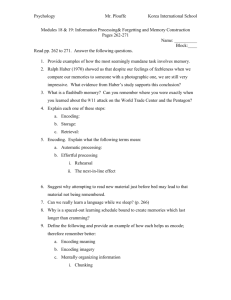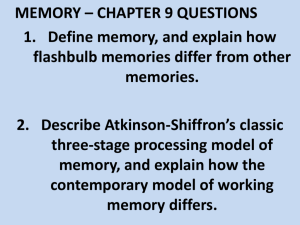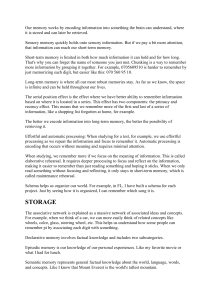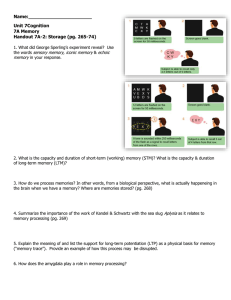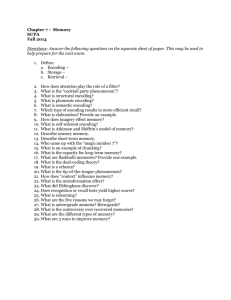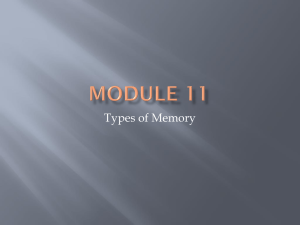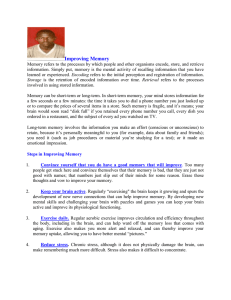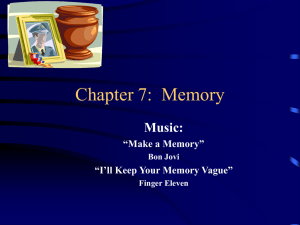Encoding Practice
advertisement
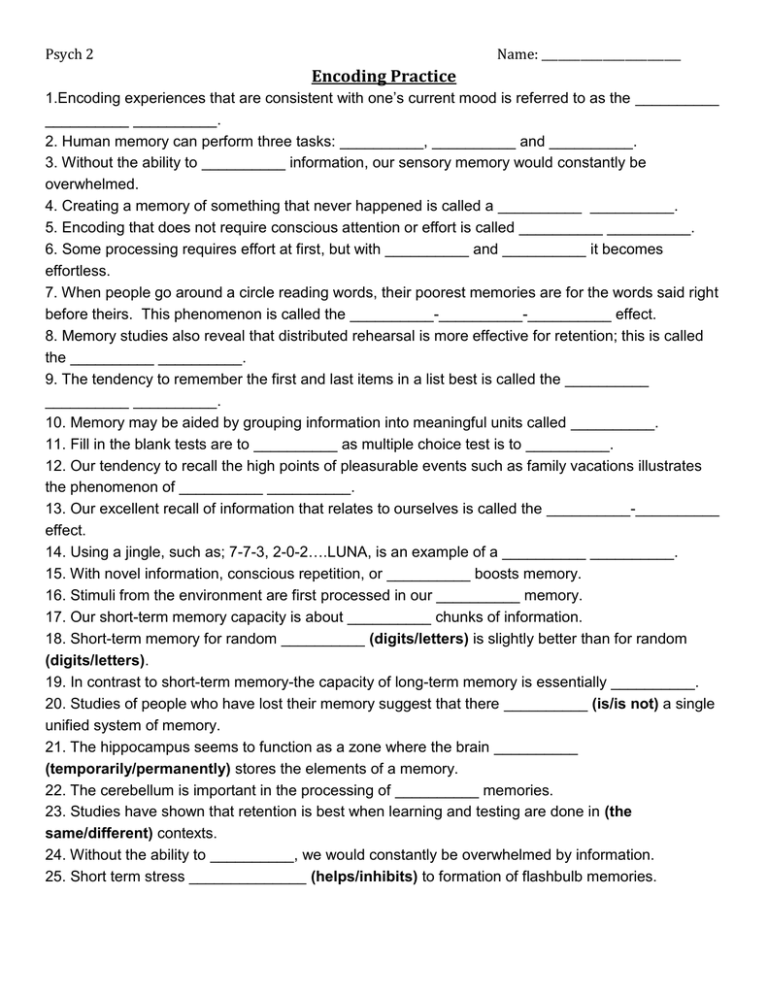
Psych 2 Name: _________________________ Encoding Practice 1.Encoding experiences that are consistent with one’s current mood is referred to as the __________ __________ __________. 2. Human memory can perform three tasks: __________, __________ and __________. 3. Without the ability to __________ information, our sensory memory would constantly be overwhelmed. 4. Creating a memory of something that never happened is called a __________ __________. 5. Encoding that does not require conscious attention or effort is called __________ __________. 6. Some processing requires effort at first, but with __________ and __________ it becomes effortless. 7. When people go around a circle reading words, their poorest memories are for the words said right before theirs. This phenomenon is called the __________-__________-__________ effect. 8. Memory studies also reveal that distributed rehearsal is more effective for retention; this is called the __________ __________. 9. The tendency to remember the first and last items in a list best is called the __________ __________ __________. 10. Memory may be aided by grouping information into meaningful units called __________. 11. Fill in the blank tests are to __________ as multiple choice test is to __________. 12. Our tendency to recall the high points of pleasurable events such as family vacations illustrates the phenomenon of __________ __________. 13. Our excellent recall of information that relates to ourselves is called the __________-__________ effect. 14. Using a jingle, such as; 7-7-3, 2-0-2….LUNA, is an example of a __________ __________. 15. With novel information, conscious repetition, or __________ boosts memory. 16. Stimuli from the environment are first processed in our __________ memory. 17. Our short-term memory capacity is about __________ chunks of information. 18. Short-term memory for random __________ (digits/letters) is slightly better than for random (digits/letters). 19. In contrast to short-term memory-the capacity of long-term memory is essentially __________. 20. Studies of people who have lost their memory suggest that there __________ (is/is not) a single unified system of memory. 21. The hippocampus seems to function as a zone where the brain __________ (temporarily/permanently) stores the elements of a memory. 22. The cerebellum is important in the processing of __________ memories. 23. Studies have shown that retention is best when learning and testing are done in (the same/different) contexts. 24. Without the ability to __________, we would constantly be overwhelmed by information. 25. Short term stress ______________ (helps/inhibits) to formation of flashbulb memories.
